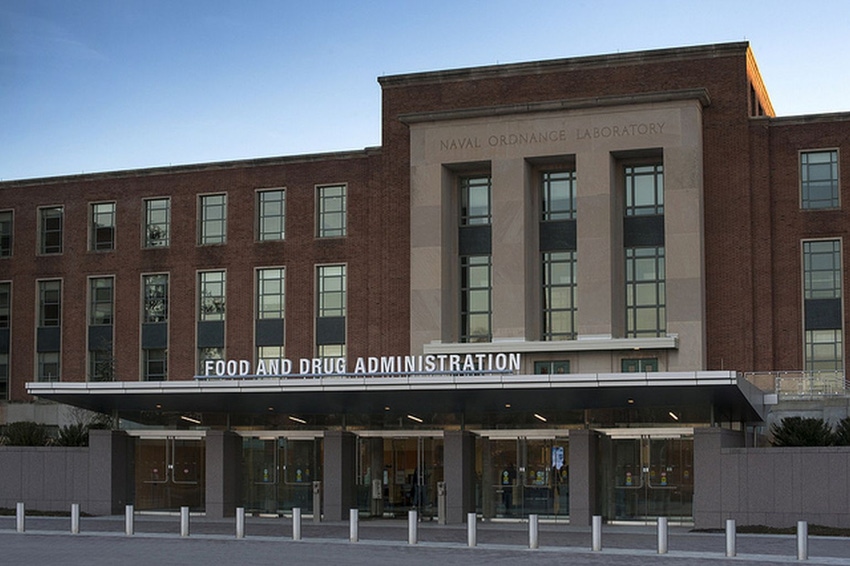
A company selling tianeptine – aka “gas station heroin” – has agreed to voluntarily recall all lots of three of its products after the Food and Drug Administration sent a letter to retailers, including convenience stores and gas stations, FDA announced.
In a Jan. 23 release, FDA revealed it continues to receive serious adverse event reports – including death, loss of consciousness and seizures – after consumers have used Neptune’s Fix products.
“These products may interact, in life-threatening ways, with other medications a consumer may be taking,” FDA warned. “The agency is actively investigating adverse event reports in conjunction with local and state health departments.”
Meanwhile, Neptune Resources LLC has agreed to voluntarily recall all lots of Neptune’s Fix Elixir, Fix Extra Strength Elixir and Fix Tablets, FDA announced.
FDA said it sent a letter on Jan. 11, urging convenience stores, gas stations and other retailers to stop selling tianeptine products. In the letter, which FDA made public in the release, the agency mentioned an earlier public safety alert in November that it issued after receiving reports of medical injuries linked to Neptune’s Fix, which is labeled to contain tianeptine.
“Tianeptine is not approved for any medical use in the United States and is often unlawfully labeled or sold as a dietary supplement,” the Health Fraud Branch of FDA’s Office of Regulatory Affairs (ORA) stated in the letter. “FDA continues to receive reports of consumers who have suffered seizures, loss of consciousness or other adverse health events after ingesting this product. We are reaching out because most consumers report purchasing this product at local gas stations or convenience stores across the country.”
At least 12 states have banned tianeptine sales, according to the letter. Citing the Centers for Disease Control and Prevention, ORA warned "the clinical effects of tianeptine abuse and withdrawal can mimic opioid toxicity/withdrawal."
FDA's letter was sent about a week before five members of Congress wrote to the head of FDA, asking what the agency was doing to address use of tianeptine.
“The urgent need for FDA action on tianeptine cannot be overstated,” the lawmakers concluded in the letter to FDA Commissioner Dr. Robert Califf. “It is vital to support legislative or administrative initiatives that strengthen FDA oversight and provide states greater ability to protect our communities from the dangers posed by substances like tianeptine.”
Reacting to the news, Natural Products Association (NPA) President and CEO Dan Fabricant referenced his earlier comments in an article yesterday about the letter to Califf from members of Congress. Fabricant questioned why FDA hadn’t taken basic measures to encourage compliance, such as getting firms to voluntarily recall their products. At the time he made those comments, it was not public knowledge that FDA had secured a voluntary recall of tianeptine products.
Fabricant said FDA should use its authority to learn (from distributors) the identities of the manufacturers of tianeptine products.
“Also, are these manufacturers/distributors registered with FDA?” he asked in an email. “Actions like that would change behavior. It’s willpower and persistence from the agency that’s needed – not reactivity – [and] that gets the job done, no matter if we’re talking infant formula, tianeptine or products tested off of Amazon.”
Americans, Fabricant concluded, want “transparency” from U.S. regulators.
Last week, the Council for Responsible Nutrition issued a statement on products containing tianeptine and being marketed as supplements. FDA has stated tianeptine doesn’t qualify as a dietary ingredient, is an unapproved food additive and supplements containing tianeptine are adulterated under the law.
"These products are frequently found in retail establishments like gas stations, convenience stores, and through online marketplaces. They are often misleadingly labeled as dietary supplements, health products, or using other benign-sounding descriptions,” according to the CRN statement. “CRN strongly advises consumers to be vigilant and avoid any products that list tianeptine as an ingredient or make unverified health claims."
About the Author(s)
You May Also Like






.png?width=800&auto=webp&quality=80&disable=upscale)